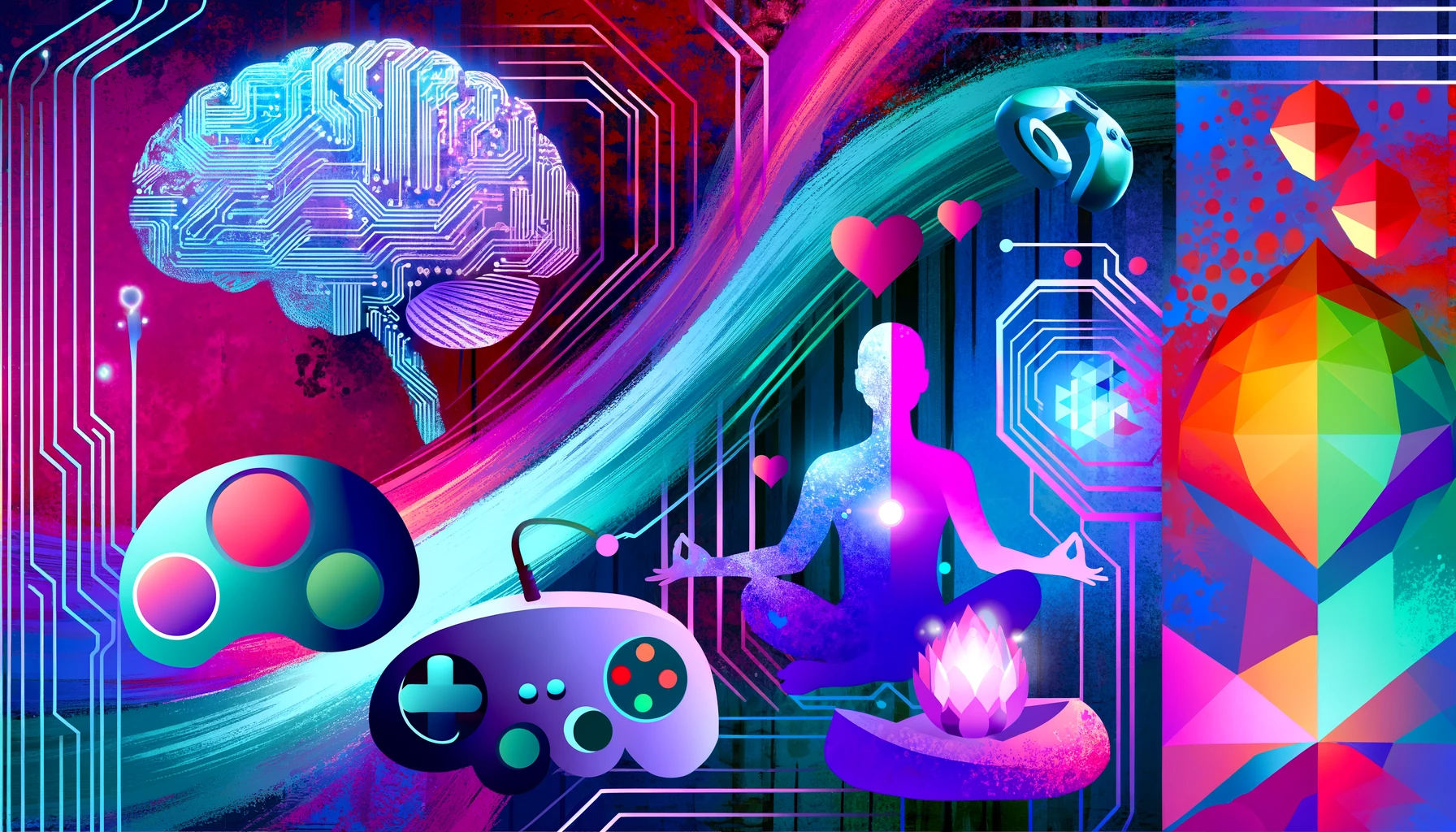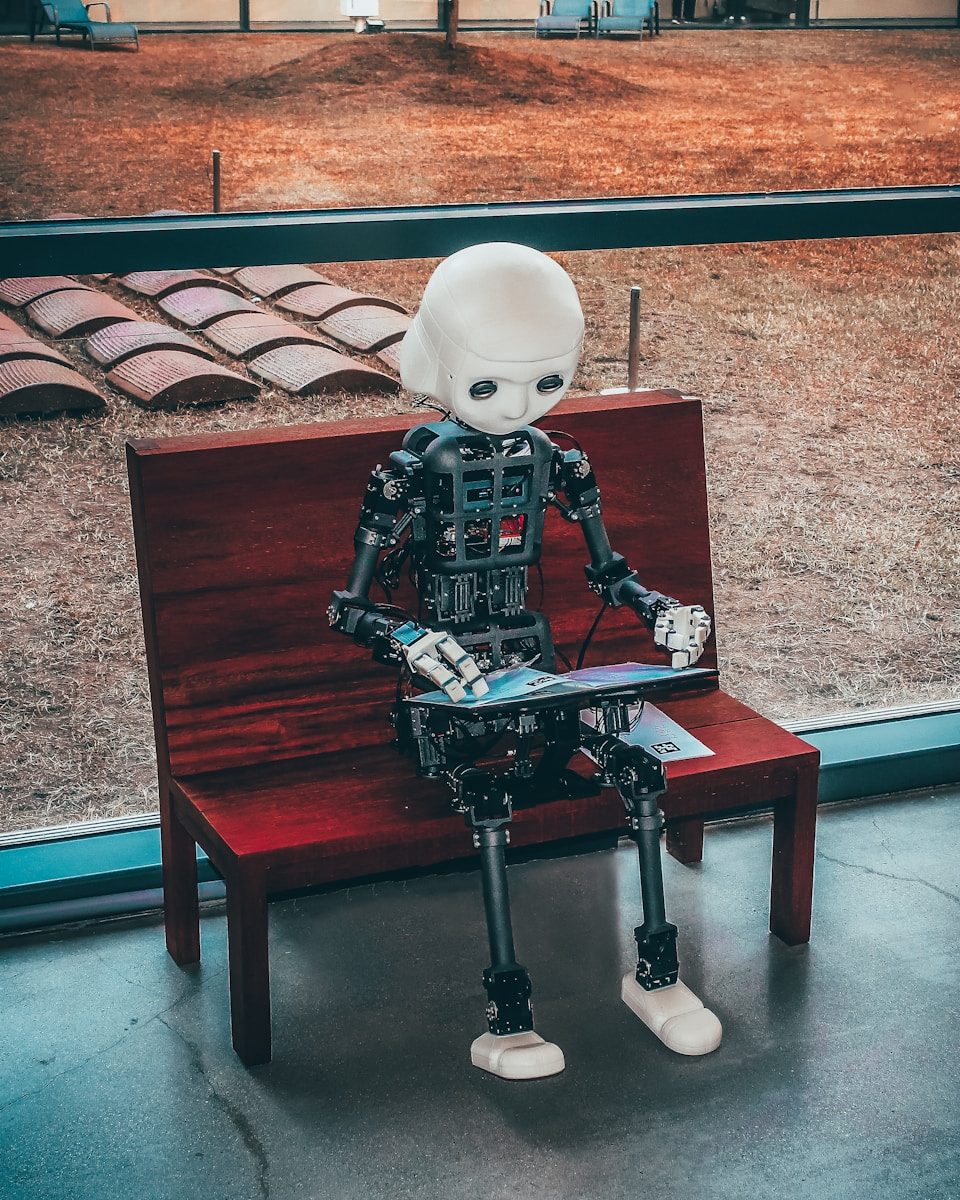Anxiety is something many of us know all too well. Whether it’s the stress of daily life, work pressures, or the challenges we’ve faced during the pandemic, anxiety has become a common experience. But what if I told you that video games, often seen as mere entertainment, hold the potential to reduce anxiety and promote mental health?
As someone who has spent years immersed in the worlds of high fashion, gaming, and digital art, I’ve seen firsthand how these digital communities can provide more than just distraction—they offer connection, mindfulness, and even therapeutic benefits.
The Therapeutic Potential of Gaming
Gaming isn’t just about flashy graphics and epic battles. For many, it’s a refuge—a place to unwind, connect, and find joy. Studies have shown that playing games can help reduce anxiety by providing a much-needed escape from stress. When you’re immersed in a game, you’re not thinking about tomorrow’s deadlines or today’s worries. You’re in the moment, and that can be incredibly therapeutic.
Games also trigger the release of dopamine, the “feel-good” hormone, which can help elevate your mood. Research from the University of Oxford has found that casual gamers report lower levels of stress and anxiety, highlighting the mental health benefits of this pastime.
Games for Change and the United Nations
The Games for Change Festival is a beacon of hope in the gaming world. This annual event showcases how games can address global issues, including mental health. Aligning with the UN’s Sustainable Development Goals (SDGs), the festival highlights projects that promote good health and well-being. Imagine a game designed not just to entertain but to teach mindfulness or help manage anxiety—that’s what Games for Change is all about. Let’s explore how Games for Change is leading the charge in using gaming for good in my home city, NYC.
Watch Poonacha Machaiah, CEO of Chopra Foundation, interview President of Games for Change, Susanna Pollack, and Eve Crevoshay, Executive Director of TakeThis.org on Peak Living.
Take Sea of Solitude, for example. This game dives deep into themes of loneliness and mental health, helping players understand and cope with these feelings. Another standout is SPARX, a game designed to help young people manage depression and anxiety. Developed with mental health professionals, SPARX uses engaging gameplay to teach valuable coping strategies.
Intergenerational Benefits
One of the beautiful things about gaming is its ability to bring people together. Games like Animal Crossing have become family favorites, fostering communication and understanding across generations. Whether it’s grandparents playing with their grandkids or parents connecting with teens, these shared experiences can reduce stress and strengthen family bonds.
One key factor driving intergenerational connection in gaming is the rise of games designed for multigenerational play. These games are not overly complex for older adults but still engaging for younger players. Imagine a family playing a cooperative online game where players of all ages work together to solve puzzles, build virtual worlds, or navigate a captivating storyline. Games like Animal Crossing require teamwork, provide a platform for families to bond, strategize, and have fun together.
Educational and Mindfulness Games
In today’s fast-paced world, mindfulness and stress management have become essential skills for maintaining mental health. Thankfully, there are games specifically designed to teach these skills, transforming what might seem like simple entertainment into powerful tools for well-being.
Journey, for instance, is a game celebrated for its serene landscapes and gentle pacing. It’s more than just a game; it’s a meditative experience. As you guide a robed figure through vast deserts and ancient ruins, you’re encouraged to relax and be present in the moment. The lack of dialogue and minimalistic design lets the beauty of the game world speak for itself, promoting a sense of calm and introspection. This game is a testament to how interactive experiences can foster a sense of peace and mindfulness.
Another excellent example is Flow, designed by Jenova Chen, the creator of Journey. Flow is a game that immerses players in a meditative state, guiding them through an underwater environment where they control a small organism. The game’s mechanics are simple yet deeply engaging, allowing players to lose themselves in the rhythmic flow of movement. The visual and auditory elements are carefully crafted to promote relaxation, making it an ideal tool for stress reduction. The game’s design encourages players to focus on the present, much like traditional meditation practices.
These games highlight a growing trend in the gaming industry towards creating experiences that go beyond entertainment, aiming to provide real mental health benefits. By incorporating elements of mindfulness and stress management, they offer players a way to unwind, reflect, and develop healthier coping mechanisms.
Moreover, the impact of these games extends beyond individual players. They serve as educational tools, demonstrating how interactive media can be used to teach valuable life skills. Schools and mental health professionals are beginning to recognize the potential of these games in therapeutic settings, using them to help individuals learn how to manage stress and anxiety effectively.
Social Connectivity and Community Building
Games like Fortnite and World of Warcraft do more than just provide entertainment—they create communities. These online worlds become social hubs where players support each other, form friendships, and find a sense of belonging. These connections can significantly reduce feelings of loneliness and anxiety.
Personal stories from players highlight the supportive nature of gaming communities. For instance, many players have found solace and support in their guilds or clans, forming lasting friendships that extend beyond the game. These communities often act as a lifeline, providing emotional support and a sense of belonging that can be crucial for mental health. Your gaming friends, family and colleagues are more connected to the world’s most diverse social resources, more than any other communities.
Future Directions and Innovations
Looking ahead, the future of gaming for mental health is incredibly exciting. Virtual reality (VR) therapy games are being developed to treat anxiety and PTSD, offering immersive experiences that can provide significant relief. AI-driven games are also on the horizon, adapting to players’ mental health needs in real-time and offering personalized support.
Gaming offers a unique and powerful tool for mental health, reducing anxiety and promoting well-being across all ages. It’s essential to approach gaming responsibly, finding a balance that works for you. By exploring therapeutic games and mindfulness apps, and supporting initiatives like Games for Change, we can harness the positive impact of gaming on mental health.
Resources for further knowledge:
Watch Poonacha Machaiah, President of Chopra Foundation, interview Carley Beck, founder of Science|Media|Gaming and a passionate advocate for tech literacy, gaming and ai as some of the most powerful tools for outreach and mental health professionals.
Resources and Further Reading:
Games for Change: festival.gamesforchange.org
Our World in Data: ourworldindata.org/mental-health
The Lancet: thelancet.com/journals/lanpsy/article/PIIS2215-0366(21)00097-2/fulltext
American Psychological Association: apa.org/news/press/releases/2013/11/video-games
Harvard Health: health.harvard.edu/blog/the-health-effects-of-too-much-gaming-2018122715729
Games for Health Journal: liebertpub.com/doi/10.1089/g4h.2014.0125
University of Oxford: ox.ac.uk/news/2020-11-16-oxford-study-findings-video-games-and-well-being
Project Sparx: sparx.org.nz
Mindlight: mindlightgame.com
Flow: flowthegame.com






